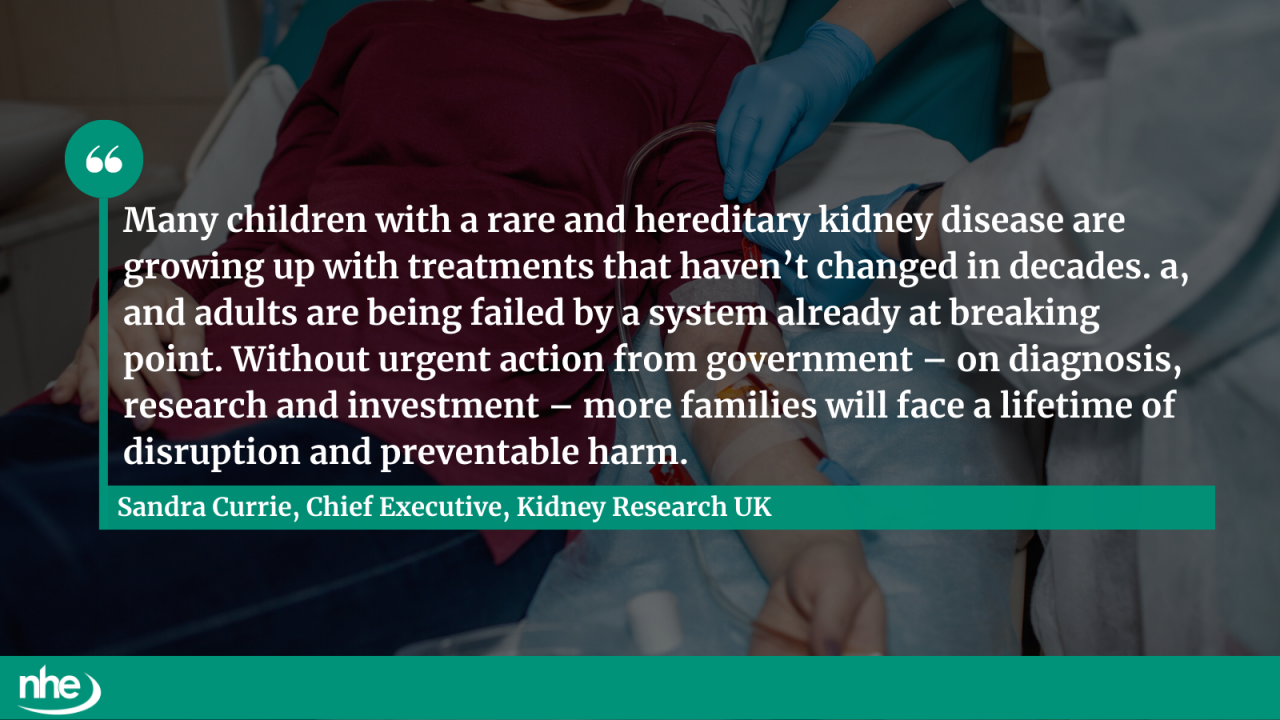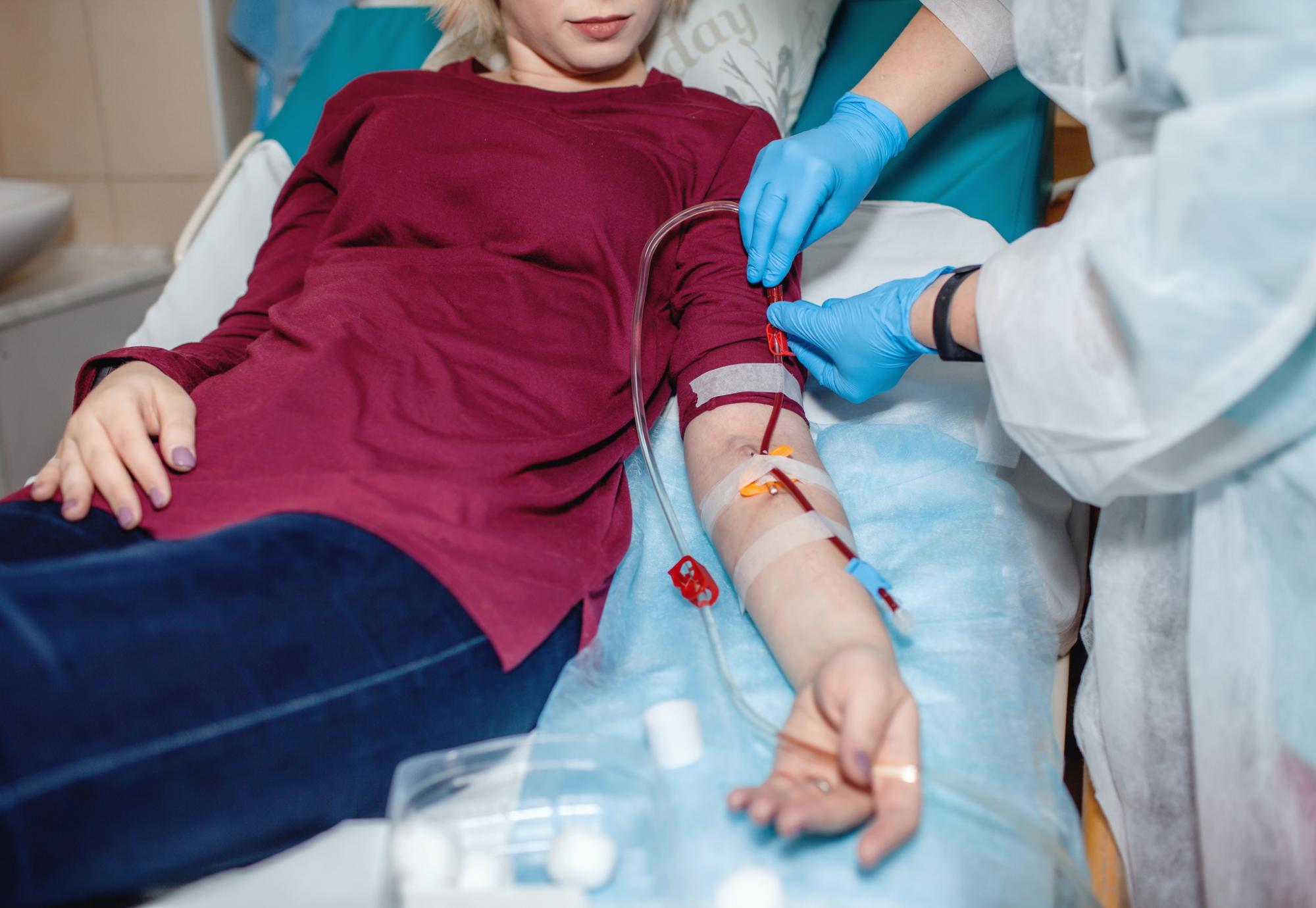People living with rare kidney diseases are facing significant delays in diagnosis, inconsistent care, and long waits for new treatments, according to a new report from Kidney Research UK.
The impact is especially severe for children, who face medical, educational and economic disruption, with many missing over 100 days of school each year due to dialysis.
The report, Collectively Common: The Devastating Impact of Rare Kidney Diseases in the UK, reveals that while rare conditions account for just 5–10% of chronic kidney disease cases in adults, they drive over a quarter of all dialysis and transplant demand. In children, more than 60% of those reaching kidney failure have a rare condition.
Key findings from the report include:
- Over 160,000 people in the UK live with a rare kidney disease
- Children often wait over a decade longer than adults for access to new treatments
- Patients with rare kidney diseases have a 64% chance of being out of work by the time they reach kidney failure
- Dialysis for rare kidney disease patients costs the NHS £263 million annually
- NHS capacity for dialysis will need to grow by 400% by 2033 to meet demand
The report shares stories like Morven, a 15-year-old from Scotland with cystinosis, who must take medication every six hours, including at school and overnight. The side effects are distressing and isolating. Her mother, Alex, describes the constant worry and disruption to family life.
Another patient, Kathryn Croker, was diagnosed with IgA vasculitis at 13. Within five months, her kidneys failed, and she missed over a year of school. Now in her thirties, she still lives with fatigue and reduced working hours despite receiving a transplant.
Kidney Research UK’s Chief Executive, Sandra Currie, said:
“Many children with a rare and hereditary kidney disease are growing up with treatments that haven’t changed in decades. a, and adults are being failed by a system already at breaking point. Without urgent action from government – on diagnosis, research and investment – more families will face a lifetime of disruption and preventable harm.
“This report provides the first real insight into the significant impact of rare kidney diseases and, importantly, lays out a clear path for action. We need faster and more accurate diagnoses, smoother transitions between child and adult services, and better inclusion of children in clinical trials so they are no longer last in line for innovation. Expanding national registries – secure databases that record who has a condition and track their treatment – will also be key to identifying patients earlier and connecting families with research. With the right investment and policy changes, we can give these children – and adults - better futures.”

Kidney Research UK is urging the government to:
- Deliver faster diagnosis
- Ensure children are included in clinical trials
- Invest in research and services to support families
- Recognise kidney disease as a public health emergency
Despite affecting over 7 million people and costing the economy £7 billion annually, kidney disease was omitted from the government’s 10 Year Health Plan, leaving patients overlooked.
The report sets out 15 recommendations across diagnostics, service design, research, and access to innovation to close the gaps in care and ensure no patient is left behind.
Image credit: iStock



















